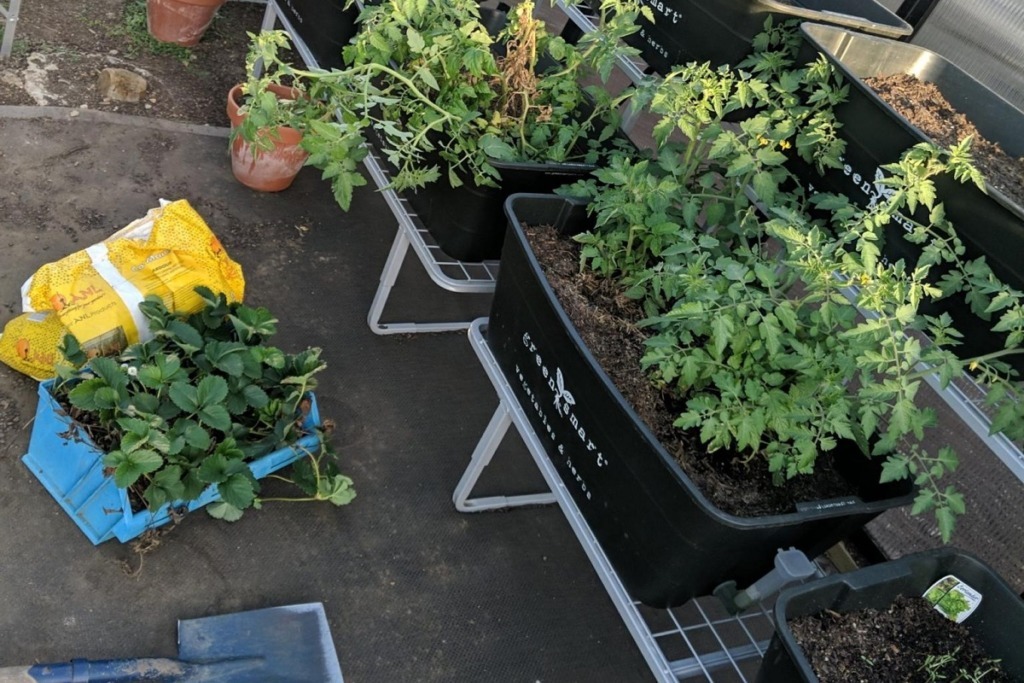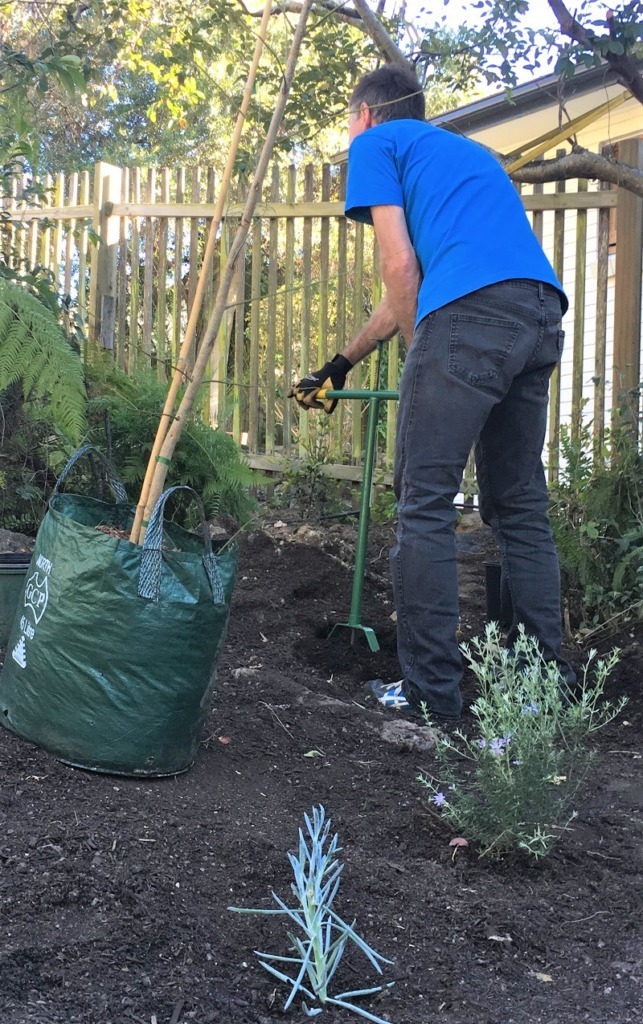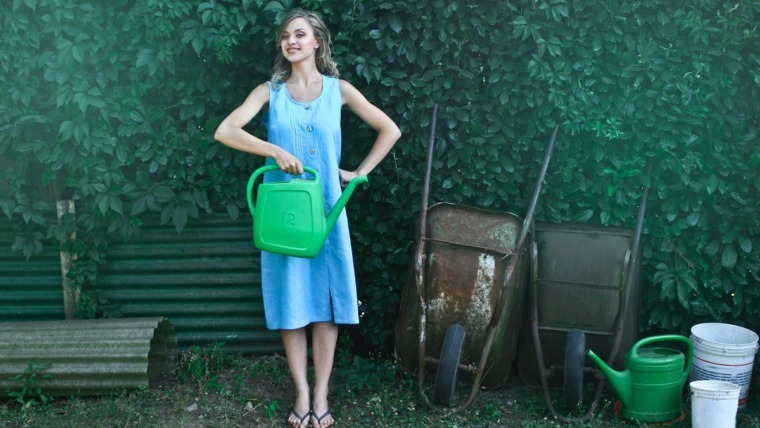
Written by Annabelle Drew
Did you know that gardening is a great tonic for your body? Those who are regular green-thumbs will intrinsically know this, but so many of us in this modern, busy world have not experienced the benefits of spending time working our green spaces.
Garden Equals Nature
Essentially, your garden is a patch of nature and there is now a wealth of knowledge around the mental advantages associated with nature. Studies have proven that our well-being improves with viewing, being in or contact with nature. But these personal gains from our landscapes extend to our bodies too.
Here are three reasons for your body to get your garden gloves on and spades out.
1. Exercise
Working in the garden improves our endurance, strength, mobility, balance and flexibility. It’s like our own outdoor gym!
Have you noticed that the lads and lassies in the landscape maintenance trade are usually trim and look tremendously fit? Spending your working life on the garden tools is a full body work-out and those guys are moving for most of the day. All that digging, raking, pruning, clipping, cultivating, spreading, watering, planting and mowing provides such a diverse range of activity, promoting muscle use and stamina.
Of course, we don’t need to be gardening for a full day to get our daily activity, and for most of us one to two hours of gentle activity is perfectly adequate.
You can start your family on a lifelong exercise path by signing them up at your ‘outdoor gym’. Include gardening in your kid’s weekly chores. They can weed a section of the veggie patch, take the food scraps to the worm farm or spread mulch on the garden beds in spring.
Encourage your parents to take on some light gardening duties, such as clipping shrubs or raking and bundling leaves in autumn. To protect backs and knees when undertaking work at ground level, it’s a good idea to invest in strap-on knee pads and kneeling pads.
Physiological Responses

Professor Alistair Griffiths, Director of Science and Collections at the Royal Horticultural Society (RHS) UK talks of the many attributes of gardening in relation to our physical health. Here are some:
- Viewing and being in Nature potentially boosts our immunity.
- Viewing nature or having nature nearby improves our quality of life and work satisfaction to the point that we take less sick leave when we view nature frequently.
- Contact with Nature (plants and animals) improves our cardiovascular function. For example, blood pressure and heart rate drop when patting a dog.
Plants also improve our environment, which in turn improves our health. Plants remove carbon dioxide from the air and produce oxygen, plus they purify the air by protecting us from particulate pollution, so our lungs can work better.
Plants help to moderate the temperature, lessening its extremes in summer and winter, so help keep our bodies more comfortable.
Healthy Fuel for Your Body
No matter your home situation, you can grow your own food. You may not be able to harvest your whole weekly menu, but even producing herbs is a great way to be in control of where some your food comes from and how it is grown.
Whether you are in a small apartment and set up a window-ledge herb pot or have a sprawling yard with room for vegetable beds, there is a way for everyone to contribute to the family’s diet.
And let’s not forget that early medicine was based on plants and their effects on the human body. Bologna University’s medical faculty still has a medicinal herb garden which is used in student training. We can all grow plants that can cure minor ailments.
Three ways to grow what we eat:
Start Small - Herb Garden.
Find a medium (40cm high) to large (60cm high) pot with drainage holes, preferably terracotta and not plastic as some leach small amounts of chemicals into the soil. Line the base with 50mm aggregate (gravel) for drainage. Fill to 75mm from the top with premium organic potting mix. Plant a variety of herb seedlings. The most popular are basil, coriander (both seasonal – check the time of year), oregano, rosemary and thyme. Mint should always be planted in its own pot due to its invasive root system.
Your ‘Back Back Garden’
If you’d love to grow your own but don’t have any ground to dig, consider some guerrilla gardening. Check with your local council first, but there is often support for residents to plant vegetables in your nature strip or another communal land around houses. Robust vegetables such as pumpkin and corn are a great way to add botanic interest to the streetscape and encourage neighbours through awareness to ‘grow your own.
Raise it Up
My experience with clients when we create edible gardens shows me that installing raised garden beds, a minimum 50cm high, greatly increases the chances of the owners using them. Working down at ground level can be a real barrier to maintaining a vegetable garden. Simply not having to stoop down makes it so much more inviting to work in the garden.
Get Started
It can be daunting to start gardening if you have had no history of working ‘your patch’. But there are plenty of ways that you can start slowly and build skills and confidence.
Here are some tips:
- Council garden workshops - check their website.
- Join your local community garden – contact your local council for information.
- Watch Gardening Australia on the ABC – it’s a Friday night staple for all gardeners!
- Subscribe to regular garden newsletters such as Sustainable Gardening Australia or Royal Botanic Garden in your nearest capital city. I subscribe to the RHS UK’s newsletters and although they are experiencing the opposite seasons to us in Australia, I love feeling connected with the other side of the globe and knowing what we’ll be doing in our gardens in 6 months’ time.
- Head to your local library – browse the incredible range of ‘How To’ books.
And if your backyard does not resemble nature in any way, get in touch with me via my website to fix it!



